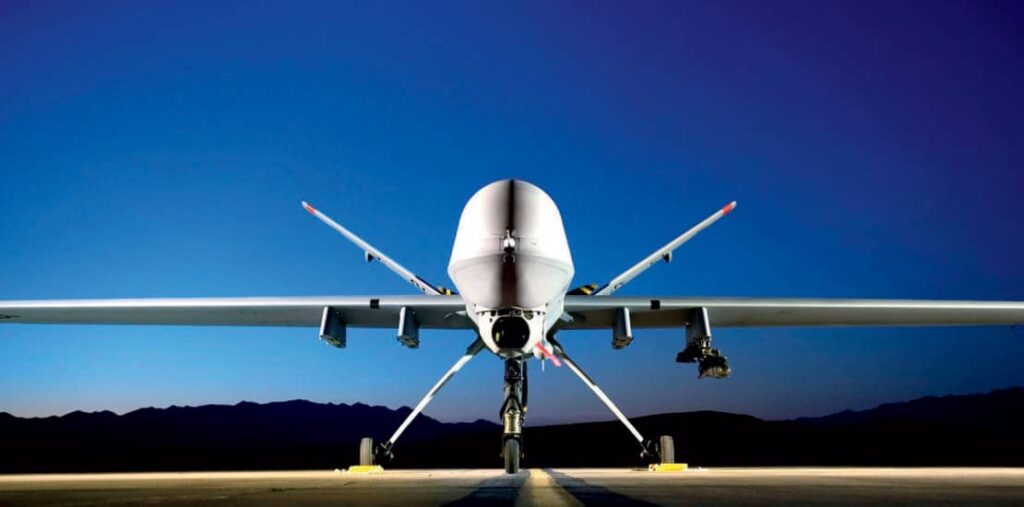AI-rospace…? Time to generate ROI from AI in aerospace

Aerospace is at a tipping point for Artificial Intelligence (AI). Few deny that AI currently is or already has transformed the industry. Nearly all companies have or will deploy AI tools in the coming months. AI is absolutely here to stay.
But there remains a nagging sense of underwhelming around AI: that the reality isn’t quite living up to the hype. Decision makers want real, tangible return on their investment – and that means concrete productivity gains, greater efficiency or improved quality. Now is the time for AI to deliver on its promise.
AI is especially important for the evolution of the aerospace sector. The technology has the power to accelerate the development process of new aircraft, bridge the talent gap, enhance manufacturing automation, and reimagine business processes amidst global economic pressures. It’s little wonder that expectations on AI are so high.
Expleo’s Integrating AI study derived insights from interviews with more than 800 C-Level executives in Europe across eight industries, including aerospace. The report concludes that the next 12 months are critical as organisations transition from contemplation to actual implementation of AI solutions, aiming to realise the potential that AI holds for transforming business processes and outcomes.
Aerospace decision makers shared that significant productivity improvements are anticipated thanks to AI, primarily in enhancing production processes and lines (67%) and support functions (62%). Quality improvement and non-conformity reduction are ranked highest (92%) among the criteria for demonstrating ROI in AI-related initiatives.
Companies are already implementing AI solutions to improve operational efficiency through supply chain optimisation, predictive maintenance and automated manufacturing inspections. In the near future, AI-driven autonomous sensors and systems will expedite the decision making for operators and pilots, augmenting situational awareness through superior data processing capabilities for the next generation of flight.
The report also identified the key challenges faced in integrating AI into aerospace, especially the complexity of existing operational frameworks, high production rates, large-scale production lines and stringent safety and security standards. In fact, aerospace is lagging behind other sectors in AI integration, largely due to strict regulations and the complexity of its design and manufacturing processes.
From theory to action: demanding tangible ROI in AI investments
Moving beyond the experimental phase, industries are now demanding tangible returns on their AI investments, focusing on implementation with clear business benefits that directly correlate to their bottom line. Expleo’s survey found that the priority outcomes of AI are better time-to-market (91% of respondents), financial gains (90%), and improved quality (90%).
Here are six steps for turning concepts into measurable wins.
1. Identify a real and viable business need
Headwind: In the rush to deploy, many factors that could undermine the business model of an AI project are overlooked, ranging from technical feasibility to scalability.
Tailwind: It sounds obvious, but an effective AI solution must have a tangible business benefit or impact. Consequently, it is crucial to get buy-in from all relevant stakeholders. This can help to overcome resistance to change and facilitate adoption. Careful management is needed when implementing AI to avoid disrupting operations. Industry-specific regulations should also be considered as they can impact the solution.
2. Evaluate technical and financial feasibility
Headwind: The main obstacle to integrating and scaling AI is its cost and technical complexity.
Tailwind: The problem should be technically addressable, scalable and compatible with your existing and IT systems. A solid business case with a clear ROI is crucial. The cost model should include data pipeline, foundation model selection, model training & validation, model fine-tuning, production, change management, the monitoring of data & model, infrastructure costs (both cloud and on premises), and maintenance.
3. Choose the right technology and architecture
Headwind: Miscalculating or underestimating true infrastructure needs is a frequent mistake. Training models in the cloud can give a misleading sense of a model’s limitations, while outdated and unsuitable legacy hardware systems can hinder progress.
Tailwind: To move AI into production, your tools must match the project's specific requirements. Getting an accurate picture of your infrastructure needs is vital to ensure the chosen technology and architecture support both current and future AI demands.
4. Develop robust and automated data pipelines
Headwind: Without good data management, your AI project is doomed from the start.
Tailwind: Data is the cornerstone of your AI programme. Ensuring the quality and availability of data, with regular updates, is critical. Training data must be complete, unbiased, and reflective of real-world conditions. Consistent data sources between training and deployment minimise AI drift and the risk of failure, leading to robust performance both at proof of concept and in real-world applications.
5. Train and validate your model on representative data
Headwind: AI applications that perform well on a smaller scale often face challenges when handling larger volumes of data or users. These challenges usually stem from issues with the model's architecture, the data it was trained on, the infrastructure it operates on, or a combination of all these factors.
Tailwind: Testing on representative data ensures that the AI can generalise well, handle real-world conditions effectively, and deliver consistent results at scale.
6. Monitor and maintain your data and models
Headwind: AI needs constant and intense supervision to adapt to changes in the environment, data, and user needs. Real-world data can differ from training data, leading to data drift and reduced accuracy.
Tailwind: Anticipating changes and monitoring data continuously are therefore crucial for maintaining effectiveness. Likewise, monitoring data, using statistical tests to detect changes, and implementing retraining strategies will prove essential for maintaining model accuracy. A robust data infrastructure and skilled personnel are vital for long-term success.
Aerospace can make up time on other industries
AI provides the opportunity for aerospace to transform itself into a leaner, more efficient, and forward-thinking machine. By embracing AI today, the industry will lay the groundwork for a profitable, sustainable future tomorrow. While aerospace faces specific challenges and requirements, the widespread adoption of AI could ensure that this industry moves to the forefront of technological progress. However, for success, businesses must take an incremental approach to adopting AI, maintaining their commitment to safety, reliability and operational excellence. 
Download Expleo’s full report, ‘Integrating AI: navigating the next wave of business transformation’ from expleo.com/AI2024









